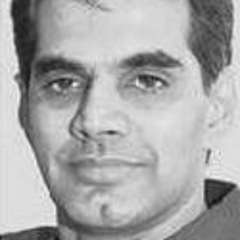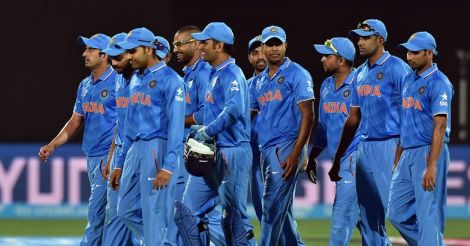There is talk that South African batsman Farhaan Behardien’s dismissal off Harbhajan Singh’s bowling was a doubtful and contentious decision given by the umpire during the second India-South Africa one day international cricket match.
As Bahardien tried to score off a ball that spun towards the leg side not only Dhoni, who caught the ball, but also the ten thousands of spectators, who had come to watch the match, at the stadium appealed for a catch behind the stumps. Umpire Vineet Kulkarni upheld the appeal and Bahardien was declared out.
However, TV replays showed that the ball had not graced Bahardien’s bat. There is an allegation that the umpire had gifted a wicket to India with a ball that should have been called a wide.
Faf du Plessis playing on the front foot was also adjudged LBW to a ball from Axar Patel by umpire Vineet Kulkarni. That was also a contentious decision given by the umpire.
How do such errors occur? The umpire should not be subjected to any sort of pressure. But there are doubts that Vineet Kulkarni succumbed to pressure. If it is true then it is pertinent to probe the circumstances that led to such a situation.
Twelve umpires from ICC’s elite panel are posted for on field duties during Test matches. There is only one Indian S. Ravi in that list. However, for officiating in one-day internationals there is a national panel comprising two officials from each member country of ICC. Vineet Kulkarni and C. Shamshuddin are members of this panel from India.
For one-day internationals, ICC appoints one neutral umpire while the second official is one of the two umpires from the national panel of the host country. The host cricket board has the right to appoint this umpire. In India, BCCI has got the right to appoint the umpire. Vineet Kulkarni was appointed by BCCI for officiating in the first two one-day internationals while Shamshuddin was appointed for rest of the matches.
Vineet Kulkarni was the on-field Indian umpire for the T20s matches which preceded the one-day internationals. Kulkarni turned down two vociferous appeals for LBWs against J.P. Duminy. The Indian team was unhappy over these decisions. In the first one-day international, Vineet wrongly gave Shikar Dhawan out as LBW. The Indians were unhappy and the team management decided to lodge complaint against Vineet Kulkarni in the ICC and at BCCI. There is nothing wrong in it.
However, drama unfolded after that. Indian team manager Vinod Phadke revealed to the media that India was going to lodge an official complaint against umpire Vineet Kulkarni. The Indian team’s complaint against umpire became a big story in the media next day. Naturally, Vineet Kulkarni, who was assigned on-field duties earlier by the BCCI, was under pressure when he stood in the next match.
When there was strong appeal from the Indian side, it was clear that Vineeth Kulkarni’s decision was not ruled by logic but by the pressure created by Indian team management’s public complaint. The vociferous appeal of screaming thousands of spectators also influenced Vineet’s decision.
The public announcement of the complaint by the Indian team manager Vinod Phadke was a pressure tactic, which should never have been allowed. The team has the right to complaint against the umpire when he makes mistakes.
However, to make it public is against the guidelines and norms. The matter should have been dealt silently at the ICC level at least at the end of the series.
But the Indian team manager broke the guidelines and norms and the match referee docked 40 per cent of his match fees as fine. However, BCCI should have dismissed the Indian manager when he committed such a serious mistake.
If such incidents are allowed it will set a precedent and a situation will come where all teams will try to put pressure on umpires through complaints that are made in public. The teams don’t mind paying the fine which is 40 per cent of the match fees. The umpires will also be under pressure from the fans.
S. Ravi made it into the ICC’s elite panel after a gap of 15 years following S. Venkatraghavan’s retirement. Vineet Kulkarni was the favourite to enter the elite panel after Ravi. It is strange that the Indian team has turned against him. I have never seen other countries turning against their umpires like this.
Technology is available today to correct the mistakes of the umpires but to resist it through pressure will only make the game poorer. (The author is a former cricket umpire and is working as Customs Commissioner in Kochi)





































































































































































































































































































































































































































































































































































































































Disclaimer
The comments posted here/below/in the given space are not on behalf of Manorama. The person posting the comment will be in sole ownership of its responsibility. According to the central government's IT rules, obscene or offensive statement made against a person, religion, community or nation is a punishable offense, and legal action would be taken against people who indulge in such activities.